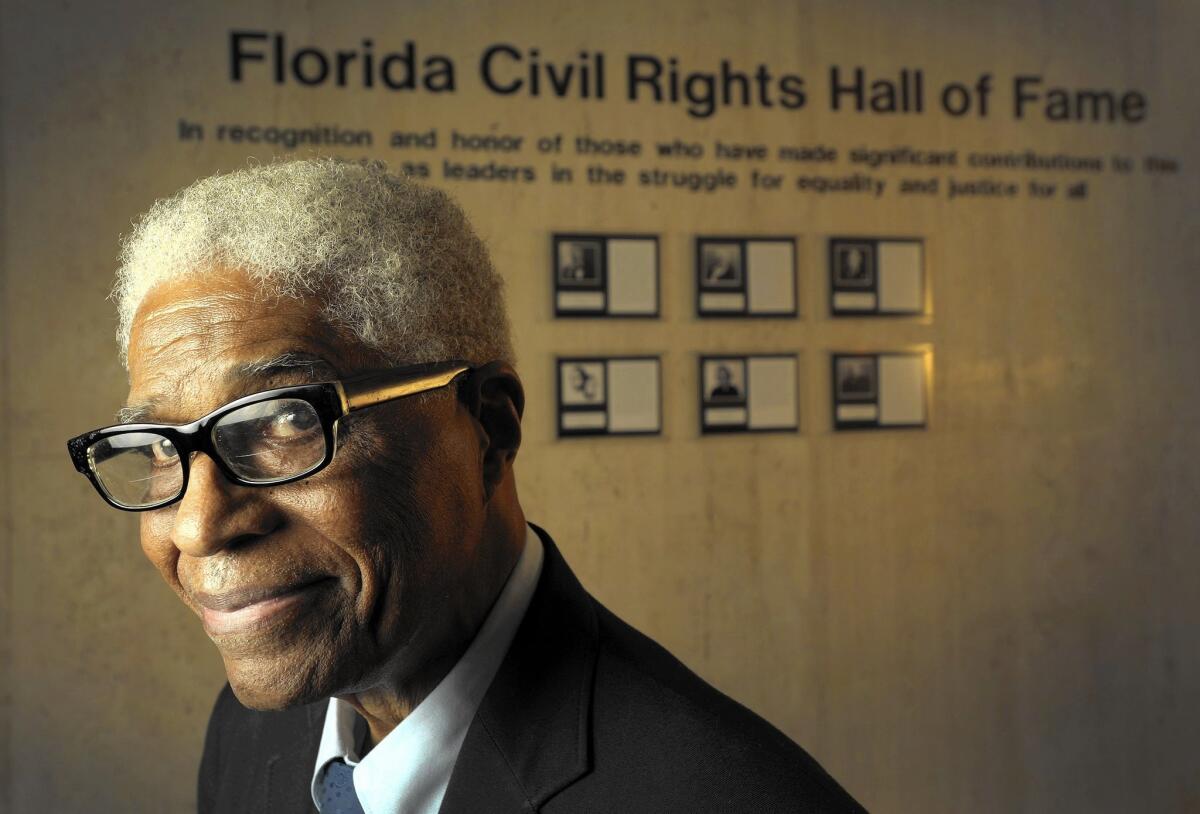PASSINGS: Robert B. Hayling, civil rights activist; Joe Jamail, billionaire Texas lawyer; Billy Glaze, convicted in 3 killings

Robert B. Hayling, Florida civil rights activist, dies at 86
Robert B. Hayling, a dentist and influential civil rights activist in Florida during the 1960s, has died. He was 86.
Yvonne Hayling-Clarke said Thursday that her brother died Dec. 20 at home in Fort Lauderdale. No cause of death has been determined.
A member of a group known as “The St. Augustine Four,” Hayling spent six months in a Florida jail and reform school in 1964 after he and three other members of the NAACP Youth Council asked to be served at a Woolworth’s lunch counter.
According to the ACCORD Civil Rights Museum, they were released only after protests by Martin Luther King Jr., Jackie Robinson and others.
Hayling-Clarke says a service is being arranged in St. Augustine in January.
Joe Jamail, billionaire Texas trial lawyer, dies at 90
Joe Jamail, a swashbuckling, billionaire trial lawyer who toppled Texaco in court and so lavished the University of Texas with donations that his name adorns its iconic football field, has died at 90, university officials said.
Known as “The King of Torts,” Jamail was famous for a down-home style that included peppering depositions and even courtroom appearances with curse words and other vulgarities.
He represented Pennzoil in a dispute with Texaco and won a colossal $10.5-billion verdict in 1987 that drove Texaco into bankruptcy.
A jury ruled that Texaco interfered with Pennzoil’s plans to acquire Getty Oil.
Attorney’s fees, including Jamail’s, came to about $400 million.
At the time, Jamail declined to reveal his share, saying with a grin: “I’ll spend (the money) on the important things like whiskey and women.”
He gave millions to the University of Texas, his alma mater, and the Longhorns play on Joe Jamail Field inside Austin’s Royal-Memorial Stadium.
In 1995, Forbes magazine ranked Jamail as the nation’s No. 1 trial lawyer, with $90 million in earnings the previous year and a then-personal wealth of $800 million.
Jamail and his wife also gave millions to Rice University, the Houston Museum of Fine Arts and to the Baylor College of Medicine, among others.
Lee Jamail died in 2007 after 57 years of marriage.
Billy Glaze, whose murder convictions the Innocence Project sought to overturn
Billy Glaze, a drifter convicted of murdering three women in Minneapolis in the 1980s, died Tuesday in prison, said an attorney who was hoping to use new DNA testing to exonerate Glaze.
Glaze died last week at a Delaware prison after being diagnosed with Stage 4 lung cancer, said Ed Magarian, one of his attorneys. The Delaware Department of Corrections said an inmate serving a life sentence after being convicted in Minnesota died Tuesday in the infirmary at the James T. Vaughn Correctional Center of natural causes following a terminal illness. The department did not identify the inmate, but Magarian confirmed that Glaze died at that prison.
Glaze had served more than 25 years of three life sentences for the murders of Kathleen Bullman, 19, Angeline Whitebird Sweet, 26, and Angela Green, 21, in 1986 and 1987. The bodies of the women were found in three locations in Minneapolis. All three were found nude or mostly unclothed with their bodies positioned in ways that suggested a serial killer.
In 2014, lawyers from the Minnesota Innocence Project, the Innocence Project in New York and Magarian’s law firm, Dorsey & Whitney, filed papers to vacate Glaze’s conviction and to win him a new trial based partly on the new DNA evidence, arguing that it showed no link to Glaze.
But Hennepin County Atty. Mike Freeman had said the Innocence Project’s evidence is “inconclusive and unpersuasive” and doesn’t meet legal standards for a new trial.
More to Read
Start your day right
Sign up for Essential California for the L.A. Times biggest news, features and recommendations in your inbox six days a week.
You may occasionally receive promotional content from the Los Angeles Times.






